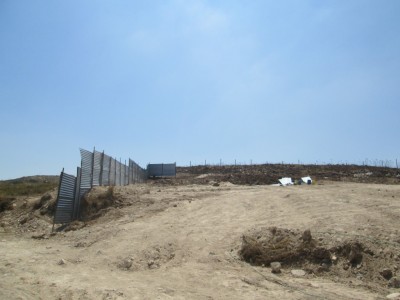Tag: Settler harassment
-
Jalud settler attack: ‘Imagine if we were not in our homes, they would have destroyed them’
13th August 2013 | International Solidarity Movement, Nablus Team | Jalud, Occupied Palestine Yesterday morning, 12th August, settlers from the illegal settlements of Esh Kodesh and Ahiya attacked several houses in the village of Jalud and set land on fire, including ten olive trees. On the morning of the 12th of August at 11:30, four…
-
Settler harassment continues in Asira’s Water reservoir project
4th August 2013 | International Solidarity Movement, Nablus Team | Asira al Qibliya , Occupied Palestine This week, settlers from Yitzhar attacked the Asira village water project and its workers, once again. Israeli occupation forces who went to the scene did not to stop the settlers and instead occupied the roof of a Palestinian house…
-
Video- Soldiers assault a twelve-year-old Palestinian while settlers invade family rooftop in Hebron
3rd August 2013 | International Solidarity Movement, Khalil Team | Hebron, Occupied Palestine Saturday August 3rd was not a peaceful Saturday for the Palestinians in Hebron. At approximately 16.30 two settlers invaded the roof of the Abu Shamsiya family in Tel Rumeida, whilst three soldiers attacked a twelve year old boy in the street nearby.…


